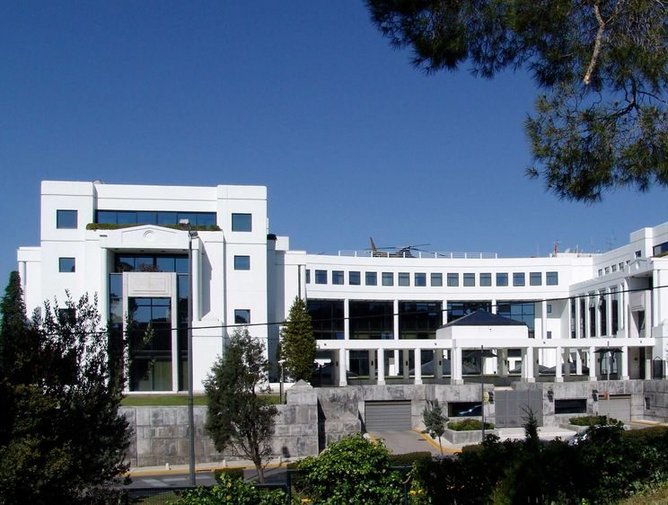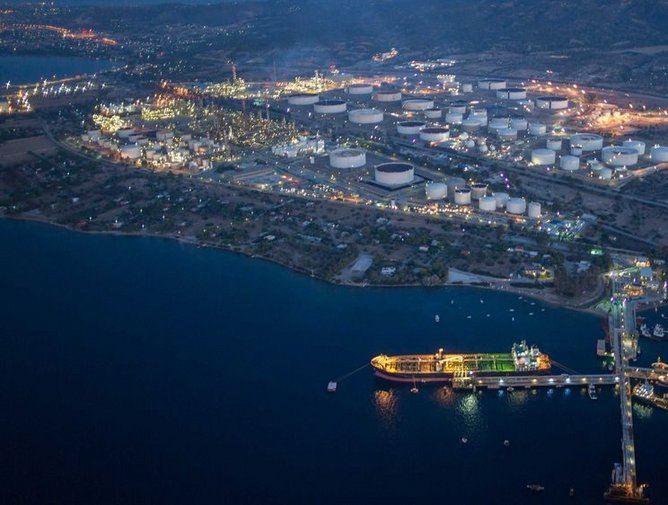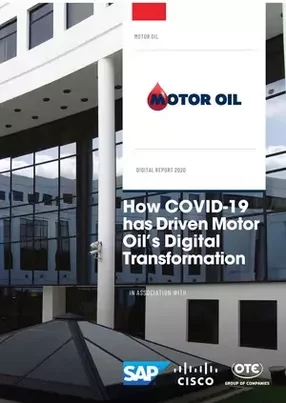How COVID-19 has driven Motor Oil's digital transformation
In the months since the Covid-19 pandemic began, numerous industries have reported a fast acceleration in terms of moving to digital processes. This certainly rings true for Motor Oil, an oil refinery based in Greece that is one of the largest in Europe.
"In the last two months we've seen two years’ worth of acceleration," its Group Chief Information Officer Nick Giannakakis says. It has also been a complex endeavour, as Giannakakis describes the company as "one of the biggest, most complex manufacturing refineries in Europe".
Motor Oil has a strong export branch, with 78% of its operations coming from export sales that need to be facilitated via loading ports and vehicles.
As well as being an oil refinery they have a large retail operation, with hundreds of petrol stations selling non-fuel products as well as petrol, making up a large part of the business.
A key aspect of the acceleration caused by COVID was ensuring employees could continue to perform their daily duties remotely. "We had to address the end user computer experience for staff, to make sure they could still work collaboratively from home and get the best possible performance," Giannakakis says.
While the pandemic of course brought challenges, Motor Oil decided to not stop any of its investments in technology, which meant much of its digital programme could continue and it also ensured a good, continued relationship with their partners. That also meant it didn’t have to delay its digital transformation.
Giannakakis is a believer in resilience in the face of adversity. To handle the challenges of COVID to the business, he says Motor Oil showed great resilience. They demonstrated this by creating new solutions. "At the peak of the crisis we developed a digital planning tool that allows our employees to perform their daily business,” says Giannakakis. “When you have an organisation that needs to communicate by making hundreds of calls on a daily basis and do their jobs from home, having the same quality in terms of communication is a very important aspect."
For the retail side of the business the company used advanced analytics to deep dive into sales models, identifying relevant models that could predict future sales. This helped them develop solutions to scale up, such as a new pay at pump service which eliminates the need for customers to step inside a shop to pay.
Another change he has seen is the way the customer experience is framed. "Some say we're living in the age of the customer, but I think we are beyond that,” he says. “Before COVID we were in the age of the platform, and COVID has brought the necessity of this platform because of the importance of having collaborative activities.
"Customer interactions through these platforms continue to be at the top of our priorities. We have seen changes, and with a change in focus sales have significantly increased, and we want to be able to react to that customer experience. I would say that now customer-centricity along with data is the new priority for our business."
In terms of manufacturing, Motor Oil developed the concept of a smart factory. Giannakakis explains this is focused on five pillars: digital engineering; digital production, where the remote operation centre is the north star; digital asset management; digital workers and equipping them with the relevant tools so they can perform their tasks; and the digital optimisation of processes.
“Everything to do with the smart factory is classified in those five pillars," he says. "With the help of our partner ecosystem working in each of these pillars allowed us to achieve increased production, reduced downtime, reduced production cost, and focus on product optimisation."
Giannakakis says that although COVID-19 has certainly accelerated all these processes, the need to do this already existed. "The challenges in the energy and oil and gas industries were already there. It's an industry that needs to change and with COVID this has been magnified and accelerated,” says Giannakakis.
"At the same time you have two frontiers: you have to keep the business going with the new reality, while not losing time regarding the digital transformation."
Strong partnerships have been vital for this. "I've always been a big believer in having relevant partner ecosystems,” he says. “Companies like ours, who are manufacturing and retail companies, cannot focus on technology ourselves, because it's not part of our mandate. We need to have a partner ecosystem around us to help us scale up and provide us with the relevant innovation in the areas and the priorities that we set. It's exactly what we have done both before and during the crisis."
He explains that having partners in various sectors help them to have the right focus and pilot new systems. "It's good for us to be able to go with a swift pilot to learn and have a partner at the same time ready to scale it up. We need to be able to combine the value offering from International and Local partners in order to be able to maximize the impact.”
From the International field SAP is an important partner for Motor Oil. "They help us with all of our transactions, whether it's on the customer side or the manufacturing side. Every inventory and every shipment lives in SAP, so it's a no-brainer for us to look to SAP to also help us innovate."
One of the largest local players is OTE. OTE has provided Motor Oil with a turn-key solution to modernise its corporate network with a Software Defined-WAN implementation. The SD-WAN solution provides a virtual WAN architecture, with users controlling and managing the entire system via software running on a central platform.
With the implementation of the SD-WAN project, Motor Oil will have achieved a simplified, fully secured network, with high availability and scalability to improve both the user experience and productivity.
Looking ahead, Giannakakis believes the major oil players will all adapt to new ways of working post-COVID.
"I think we are going to live in a new reality where our priorities and our digital transformation will be accelerated, but also I think the traditional model was always focused on two pillars: innovation of the business model, and the operational side,” concludes Giannakakis. “Now we've added sustainability into the mix too. It's a strong directive from the European Union but also from across the sector. Whatever is good for the environment is good for the business too."



